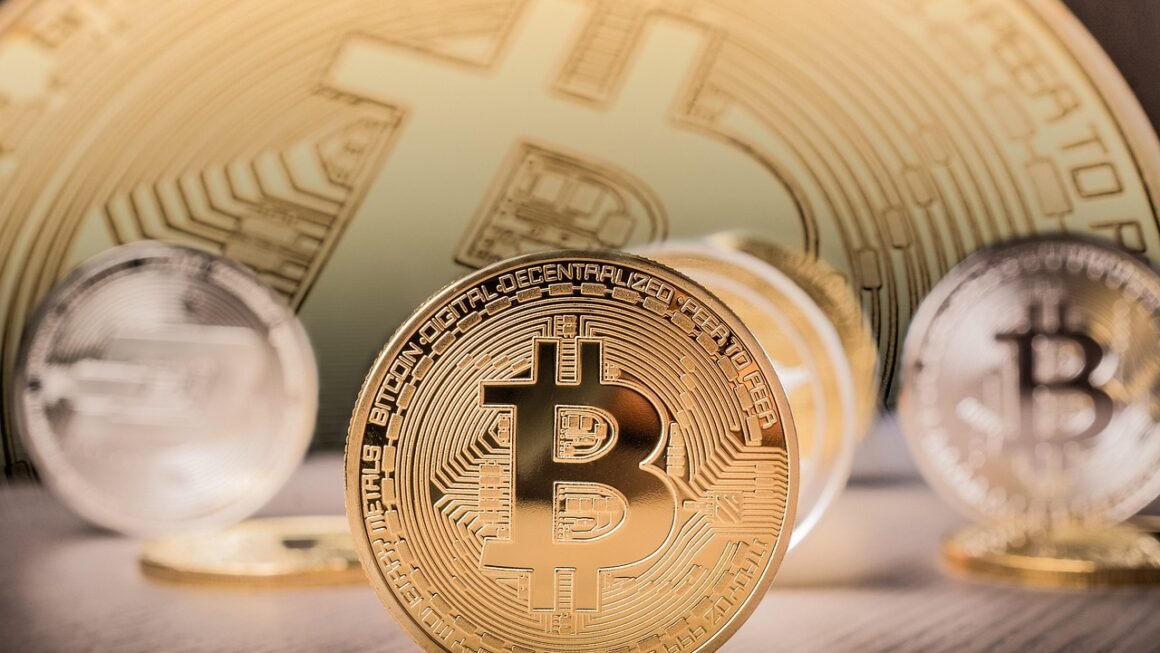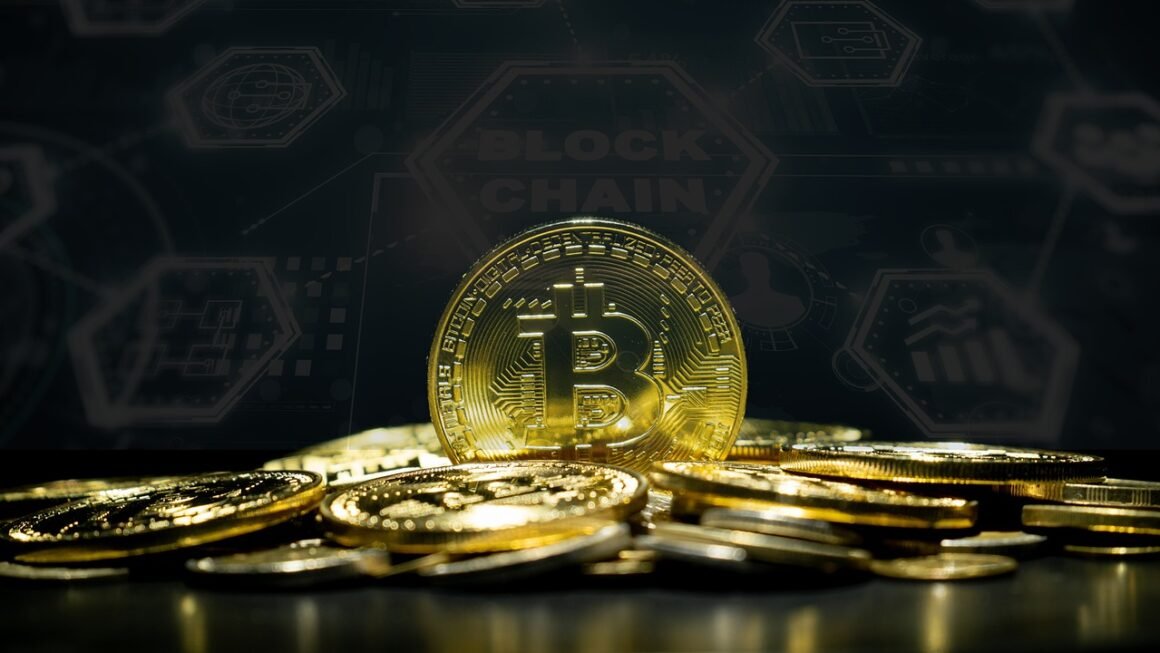Altcoins: Navigating the World of Alternative Cryptocurrencies
The world of cryptocurrency extends far beyond Bitcoin. Since Bitcoin’s inception, thousands of alternative cryptocurrencies, known as altcoins, have emerged, each with its own unique features, goals, and potential. Understanding altcoins is crucial for anyone looking to diversify their crypto portfolio or explore innovative blockchain technologies. This comprehensive guide will delve into the landscape of altcoins, exploring their types, benefits, risks, and how to navigate this exciting yet complex market.
What are Altcoins?
Definition and Origin
Altcoin, short for “alternative coin,” refers to any cryptocurrency other than Bitcoin. They emerged as variations or improvements upon Bitcoin’s original design. Many altcoins aim to address perceived limitations of Bitcoin, such as transaction speed, scalability, or energy consumption.
- Bitcoin’s Dominance: Bitcoin remains the dominant cryptocurrency, often serving as a benchmark for the entire crypto market.
- Evolution of Altcoins: Altcoins have evolved significantly, introducing new consensus mechanisms, smart contract capabilities, and decentralized applications (dApps).
Types of Altcoins
Altcoins can be categorized based on their purpose and underlying technology. Understanding these categories helps in assessing their potential and risks.
- Mining-Based Altcoins: These altcoins, like Litecoin and Dogecoin, use a proof-of-work (PoW) consensus mechanism similar to Bitcoin. Miners validate transactions and earn rewards.
- Staking-Based Altcoins: Cryptocurrencies like Cardano (ADA) and Solana (SOL) utilize a proof-of-stake (PoS) mechanism. Users stake their coins to validate transactions and earn rewards. PoS is generally more energy-efficient than PoW.
- Stablecoins: These altcoins, such as Tether (USDT) and USD Coin (USDC), are pegged to a stable asset like the US dollar to minimize price volatility. They are often used as a medium of exchange within the crypto ecosystem.
- Governance Tokens: Tokens like Maker (MKR) give holders the right to vote on decisions related to the project’s development and management. They empower users to participate in the governance of decentralized platforms.
- Utility Tokens: These tokens, such as Chainlink (LINK) or Filecoin (FIL), provide access to specific products or services within a particular blockchain ecosystem.
- Meme Coins: Cryptocurrencies like Dogecoin (DOGE) and Shiba Inu (SHIB) gained popularity through internet memes and social media hype. They are often highly volatile and speculative.
Benefits of Investing in Altcoins
Diversification
Investing in altcoins allows you to diversify your cryptocurrency portfolio beyond Bitcoin. Diversification can potentially reduce overall risk and increase the chances of finding high-growth opportunities.
- Reduced Dependency on Bitcoin: By allocating capital to different altcoins, you are less exposed to the price fluctuations of Bitcoin.
- Exploration of New Technologies: Altcoins offer exposure to innovative blockchain technologies and use cases that Bitcoin may not support.
Potential for Higher Returns
Some altcoins have the potential for significantly higher returns than Bitcoin, especially during bull markets. Identifying promising projects early can lead to substantial gains.
- Smaller Market Cap: Altcoins with smaller market capitalizations have more room for growth compared to Bitcoin, which has a large and established market presence.
- Innovation and Adoption: Altcoins that solve specific problems or offer unique solutions can attract significant adoption and drive up their value.
Access to Innovative Technologies
Altcoins often introduce new technologies and features that are not available in Bitcoin, such as faster transaction speeds, improved scalability, and enhanced privacy features.
- Smart Contracts: Platforms like Ethereum (ETH) and Solana (SOL) support smart contracts, enabling the development of decentralized applications (dApps).
- Scalability Solutions: Altcoins like Polygon (MATIC) offer layer-2 scaling solutions to improve transaction throughput and reduce fees.
Risks and Challenges of Altcoin Investing
Higher Volatility
Altcoins are generally more volatile than Bitcoin, meaning their prices can fluctuate dramatically in short periods. This volatility can lead to both significant gains and significant losses.
- Market Sentiment: Altcoins are often more susceptible to market sentiment and social media trends.
- Lower Liquidity: Some altcoins have lower trading volumes and liquidity, making it harder to buy or sell large amounts without affecting the price.
Project Risk
Many altcoins are created by relatively new and unproven teams. There is a risk that the project may fail to deliver on its promises or even be abandoned altogether.
- Lack of Regulation: The altcoin market is largely unregulated, which can increase the risk of fraud and scams.
- Security Vulnerabilities: Some altcoins may have security vulnerabilities in their code, making them susceptible to hacks and exploits.
Regulatory Uncertainty
The regulatory landscape for cryptocurrencies is still evolving, and there is uncertainty about how altcoins will be treated by regulators in different jurisdictions.
- Potential for Bans: Some countries have banned or restricted the use of cryptocurrencies, which could negatively impact the value of altcoins.
- Tax Implications: The tax treatment of altcoins can be complex and vary depending on the jurisdiction.
How to Evaluate Altcoins Before Investing
Research the Project
Thoroughly research the project behind the altcoin, including its team, technology, use case, and community.
- Whitepaper Analysis: Read the project’s whitepaper to understand its goals, technology, and roadmap.
- Team Background: Investigate the team’s experience and track record in the blockchain industry.
- Community Engagement: Assess the level of community engagement and support for the project.
Analyze Market Data
Examine the altcoin’s market data, including its price history, trading volume, market capitalization, and circulating supply.
- Price Charts: Analyze price charts to identify trends and patterns.
- Trading Volume: High trading volume indicates strong interest and liquidity.
- Market Cap: Market capitalization provides an indication of the altcoin’s overall size and potential for growth.
Assess Technology and Security
Evaluate the altcoin’s underlying technology and security measures.
- Consensus Mechanism: Understand the consensus mechanism used by the altcoin and its implications for security and scalability.
- Code Audit: Check if the project’s code has been audited by reputable security firms.
- Security Incidents: Research whether the altcoin has experienced any security breaches or hacks in the past.
Understand Tokenomics
Tokenomics refers to the economics of the token, including its supply, distribution, and utility.
- Token Supply: Understand the total and circulating supply of the token.
- Distribution Mechanism: Analyze how the tokens are distributed (e.g., through ICOs, airdrops, or mining).
- Token Utility: Assess the token’s utility within the project’s ecosystem.
Where to Buy and Store Altcoins
Cryptocurrency Exchanges
Altcoins can be bought and sold on various cryptocurrency exchanges, each offering different features, fees, and selection of coins.
- Centralized Exchanges (CEXs): Platforms like Binance, Coinbase, and Kraken offer a wide range of altcoins and advanced trading features.
- Decentralized Exchanges (DEXs): Platforms like Uniswap and SushiSwap allow users to trade altcoins directly from their wallets without intermediaries.
- Considerations: Compare fees, security measures, and available coins before choosing an exchange.
Cryptocurrency Wallets
Storing altcoins securely is crucial to protect your investment. Different types of wallets offer varying levels of security and convenience.
- Hardware Wallets: Devices like Ledger and Trezor provide the highest level of security by storing your private keys offline.
- Software Wallets: Desktop and mobile wallets offer a balance of security and convenience. Examples include Exodus and Trust Wallet.
- Exchange Wallets: Storing altcoins on an exchange wallet is convenient for trading but carries a higher risk of hacking or theft.
- Security Best Practices: Enable two-factor authentication (2FA), use strong passwords, and keep your private keys safe.
Conclusion
Navigating the world of altcoins can be both exciting and challenging. While altcoins offer the potential for high returns and exposure to innovative technologies, they also come with significant risks, including higher volatility, project risk, and regulatory uncertainty. By conducting thorough research, analyzing market data, and understanding the underlying technology and tokenomics of each altcoin, investors can make more informed decisions and navigate this dynamic market effectively. Remember to diversify your portfolio, manage your risk, and stay informed about the latest developments in the cryptocurrency space.



